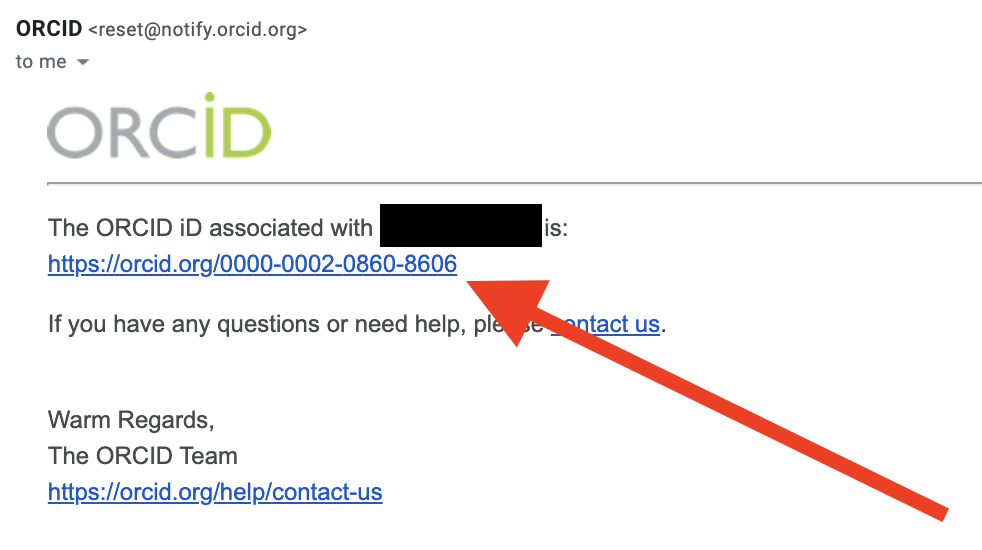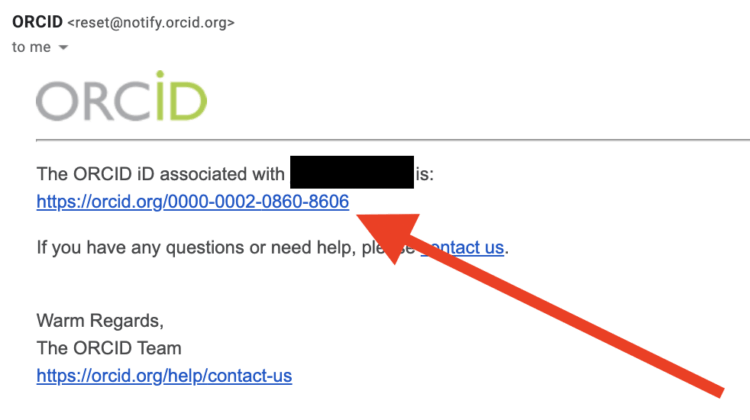How to Reset Your Body After a Long Week is a crucial topic for anyone feeling the burden of stress and fatigue that accumulates over time. As we navigate through busy workdays and hectic schedules, our bodies and minds often crave a refreshing reset, both physically and mentally. This guide will explore effective strategies to rejuvenate your system and restore balance, ensuring you emerge revitalized and ready to tackle the week ahead.
By understanding the importance of resetting your body, recognizing the signs that indicate a need for a reset, and implementing practical methods, you can significantly enhance your overall well-being. From detox routines and mindful practices to creating a sustainable reset schedule, we’ll cover everything you need to know to make the most of your well-deserved downtime.
Importance of Resetting Your Body
Resetting your body after a long week is crucial for both physical and mental health. The cumulative effects of stress, fatigue, and an unbalanced lifestyle can take a toll on your overall well-being. Whether it’s from long work hours, challenging personal situations, or simply the hustle and bustle of everyday life, taking time to reset can rejuvenate your spirit and reset your body for the upcoming challenges.
The benefits of resetting your body extend beyond mere relaxation. Physically, it can lead to improved energy levels, better sleep quality, and enhanced immune function. Mentally, it can reduce anxiety, increase focus, and enhance your overall mood. Recognizing the signs that indicate your body is in need of a reset is essential for maintaining optimal health.
Signs Indicating Your Body Needs a Reset
Understanding when your body requires a reset can help you take proactive measures towards better health. The following signs often indicate that it’s time to pause and rejuvenate:
- Exhaustion: Persistent fatigue despite adequate rest can suggest a need for recovery.
- Increased irritability: A heightened sense of frustration or mood swings often points to built-up stress.
- Physical tension: Unexplained muscle tightness or discomfort in the body signifies accumulated stress.
- Difficulty concentrating: A scattered mind may indicate mental fatigue and the necessity for a reset.
- Changes in appetite: Either loss of appetite or cravings for unhealthy foods are signs of emotional and physical imbalance.
The presence of these symptoms suggests that your body is overwhelmed and requires time to recover and restore balance. Listening to these cues is essential for maintaining long-term wellness.
Impact of Stress and Fatigue on Overall Well-Being
Stress and fatigue can significantly affect both physical health and mental clarity. Chronic stress has been linked to numerous health issues, including heart disease, obesity, and weakened immune response. Fatigue can exacerbate these conditions, leading to a vicious cycle of declining health.
The cumulative effect of stress can lead to burnout, which is characterized by emotional, physical, and mental exhaustion.
In addition to physical ailments, stress and fatigue can impair cognitive functions, making it difficult to focus, remember details, and make decisions. This can negatively impact productivity in both personal and professional spheres.
Being aware of and addressing stressors promptly can lead to healthier coping mechanisms, such as engaging in physical activity, practicing mindfulness, or seeking social support. Implementing a structured reset can thus serve as a powerful tool for breaking the cycle of stress and fatigue, allowing for improved health and overall life satisfaction.
Methods for Physical Reset: How To Reset Your Body After A Long Week

Resetting your body after a long week can be crucial for restoring balance and enhancing overall well-being. Engaging in various methods can facilitate this process, allowing you to rejuvenate physically and mentally. Below are effective techniques that encompass detoxification, workout routines, and nutritional strategies.
Weekend Detoxifying Regimen
A detoxifying regimen can help clear out accumulated toxins, improve digestion, and enhance energy levels. A detailed plan for the weekend can include the following steps:
1. Hydration: Begin each day with a glass of warm water mixed with lemon juice to kickstart your metabolism and aid digestion. Aim for at least 8-10 glasses of water throughout the day.
2. Whole Foods: Focus on consuming whole, unprocessed foods. Include plenty of fruits and vegetables, nuts, seeds, and whole grains. A sample meal plan could look like this:
– Breakfast: Smoothie with spinach, banana, almond milk, and chia seeds.
– Lunch: Quinoa salad with mixed greens, cherry tomatoes, avocado, and a lemon vinaigrette.
– Dinner: Grilled salmon with steamed broccoli and sweet potato.
3. Eliminate Toxins: Avoid caffeine, alcohol, refined sugars, and processed foods during the detox. This helps in reducing the intake of substances that can burden your body.
4. Restorative Practices: Dedicate time for relaxation through activities like yoga or meditation to help alleviate stress.
5. Gentle Cleansing: Consider a gentle detox tea or herbal supplements designed to support liver function, but consult with a healthcare professional before beginning any new supplement regimen.
Rejuvenating Workouts
Physical activity plays an essential role in resetting the body. Different types of workouts can help revitalize your energy levels and enhance mood:
– Yoga: Practicing yoga helps in promoting flexibility and relaxation. A focus on deep breathing and meditation assists in mental clarity and stress reduction.
– Pilates: This low-impact workout strengthens core muscles and improves posture, offering a refreshing reset for your body.
– Cardio Exercises: Engaging in cardiovascular activities like brisk walking, cycling, or running boosts circulation, increases endorphins, and uplifts your spirit.
– Strength Training: Incorporating resistance exercises helps in muscle recovery and metabolism boosting. Aim for two sessions per week focusing on major muscle groups.
– Outdoor Activities: Fresh air can significantly enhance your mood. Activities like hiking or swimming in natural bodies of water can provide both physical and mental rejuvenation.
Nutrition’s Role in Body Resetting
Proper nutrition is a vital component of resetting the body. Focusing on whole, nutrient-dense foods can significantly impact energy levels and overall health. Here’s how to optimize your intake:
– Meal Planning: Creating a meal plan helps in ensuring balanced nutrition. Incorporate a variety of food groups:
– Proteins: Lean meats, fish, legumes, and nuts.
– Carbohydrates: Whole grains, fruits, and vegetables.
– Fats: Healthy fats from avocados, olive oil, and nuts.
– Sample Recipes:
– Breakfast: Overnight oats topped with berries, nuts, and a drizzle of honey.
– Snack: A handful of mixed nuts and dried fruit for a quick energy boost.
– Lunch: Lentil soup packed with vegetables and spices for flavor.
– Dinner: Stir-fried tofu with colorful bell peppers, served over brown rice.
– Mindful Eating: Pay attention to portion sizes and enjoy your meals without distractions. This practice can lead to better digestion and satisfaction from your food.
Incorporating these physical methods into your weekend routine can significantly contribute to a successful reset, leaving you feeling revitalized and ready to tackle the upcoming week.
Mental Reset Techniques
Resetting your mental state is just as crucial as resetting your physical body after a long week. Engaging in mindfulness and meditation practices can significantly enhance your mental clarity while reducing stress. These techniques allow you to reclaim focus and restore your cognitive vitality, ensuring you’re prepared to tackle the challenges ahead.
Mindfulness and meditation are effective tools for promoting mental clarity. Mindfulness involves being fully present in the moment, acknowledging your thoughts without judgment, while meditation is a practice that helps quiet the mind through concentration and reflection. Both methods can significantly reduce stress and enhance overall well-being.
Mindfulness and Meditation Practices
Incorporating mindfulness and meditation into your routine can provide a myriad of benefits. Regular practice has been shown to improve emotional resilience, enhance focus, and increase overall happiness. Consider implementing the following techniques:
- Guided Meditation: Utilize apps or online platforms that offer guided sessions tailored to various needs, such as relaxation, focus, or sleep.
- Breathing Exercises: Practice deep breathing techniques, such as the 4-7-8 method, which involves inhaling for 4 seconds, holding for 7 seconds, and exhaling for 8 seconds.
- Mindful Walking: Take a walk in nature, focusing your attention on the sensations of your feet hitting the ground and the sounds around you.
- Body Scan Meditation: Dedicate time to mentally scan your body from head to toe, noticing areas of tension and consciously relaxing them.
Techniques for Reducing Stress and Enhancing Focus
Managing stress effectively is essential for mental rejuvenation. Adopting specific techniques can help cultivate a calm mind and enhance concentration. Here are practical strategies to integrate into your daily life:
- Journaling: Spend a few minutes daily writing down thoughts and feelings to clarify your mind and reduce anxiety.
- Time Management: Use tools like the Pomodoro Technique, which involves working in intervals of 25 minutes followed by a 5-minute break to maintain focus.
- Digital Detox: Allocate time away from screens to recharge mentally and reduce overstimulation.
- Engagement in Hobbies: Dedicate time to activities you enjoy, as they can serve as excellent outlets for stress relief.
Recommended Reading and Podcasts for Mental Rejuvenation
Expanding your knowledge through books and podcasts can be a great way to reset mentally. Engaging with different perspectives can inspire fresh ideas and promote mental clarity. Here’s a curated list of resources:
- Books:
- “The Power of Now” by Eckhart Tolle
- “Mindfulness in Plain English” by Bhante Henepola Gunaratana
- “Atomic Habits” by James Clear
- Podcasts:
- “The Daily Meditation Podcast”
- “On Being with Krista Tippett”
- “The Happiness Lab with Dr. Laurie Santos”
Engaging with these resources can stimulate your mind and foster a sense of calm, contributing to a comprehensive reset of your mental state.
Creating a Sustainable Reset Schedule

Resetting your body is not just a one-time activity; it’s a lifestyle choice. To truly reap the benefits of regular resets, it’s essential to create a sustainable schedule that fits seamlessly into your busy life. By doing so, you can foster a routine that promotes both physical and mental well-being while ensuring that you remain committed to your health goals.
Establishing a reset schedule involves planning your week thoughtfully. It’s about strategically incorporating resets into your daily routine without feeling overwhelmed. Here are some effective strategies to create a manageable reset schedule that you can stick to long-term.
Weekly Plan Structure
Creating a weekly reset schedule requires a balance between your personal and professional responsibilities. Having a structured plan can help you stay on track. Consider the following elements when designing your reset week:
- Set Specific Days for Different Types of Resets: For example, dedicate Sundays for meal prepping, Wednesdays for a mid-week yoga class, and Fridays for digital detox.
- Prioritize Short Daily Practices: Incorporate brief activities like meditation, stretching, or journaling each day, ensuring they fit within your existing schedule.
- Use Scheduling Tools: Employ tools like calendar apps or planners to block off time for your resets, making these activities non-negotiable parts of your day.
- Be Flexible: Life is unpredictable; allow room for adjustment in your schedule to accommodate unexpected events without abandoning your reset practices.
Consistency and Commitment Tips, How to Reset Your Body After a Long Week
Staying consistent with your reset routine can be challenging, but these tips can help you cultivate commitment:
- Find Accountability Partners: Share your reset goals with friends or family members who can help encourage you to stick to your schedule.
- Track Your Progress: Maintain a journal or use apps to track your reset activities and reflect on the physical and mental changes you observe.
- Reward Yourself: Celebrate small achievements or milestones with non-food rewards to reinforce your commitment to the reset schedule.
- Focus on the Benefits: Regularly remind yourself of the positive impacts of your resets, such as improved mood, energy levels, and better focus.
Comparing Reset Methods
Different methods of resetting can yield varying results depending on individual preferences and lifestyles. It’s important to explore various options to find what works best for you:
- Physical Reset Techniques: Methods such as intermittent fasting, detoxing, or engaging in high-intensity workouts can rejuvenate your physical body but may require more structured planning and commitment.
- Mental Reset Techniques: Activities like mindfulness meditation, digital detox, and nature walks tend to have immediate effects on mental clarity and stress reduction but could potentially lack physical engagement.
- Combination Approaches: Integrating both physical and mental resets—like practicing yoga or going for a run followed by meditation—can provide comprehensive benefits, leading to long-term well-being.
“Consistency is key; the more you integrate resets into your life, the more naturally they will fit into your routine.”
Final Summary
In conclusion, resetting your body after a long week is not just a luxury but a necessity for maintaining a healthy balance in life. By incorporating the right physical and mental reset techniques into your routine, you can effectively combat stress and fatigue, leading to improved well-being and productivity. Embrace these strategies and make them a regular part of your lifestyle, ensuring that each week begins with renewed energy and clarity.
FAQ Resource
What are some signs my body needs a reset?
Common signs include persistent fatigue, irritability, difficulty concentrating, and physical discomfort.
How often should I perform a body reset?
It’s advisable to reset your body every week or whenever you feel overwhelmed and out of balance.
Can I reset my body in just one weekend?
Yes, a focused weekend detox and rejuvenation routine can significantly help restore balance and energy.
What types of workouts are best for a physical reset?
Low-impact exercises like yoga, swimming, or moderate strength training are great for rejuvenation.
How can I ensure my reset routine is sustainable?
By creating a weekly plan and setting realistic goals, you can incorporate reset practices into your lifestyle consistently.




